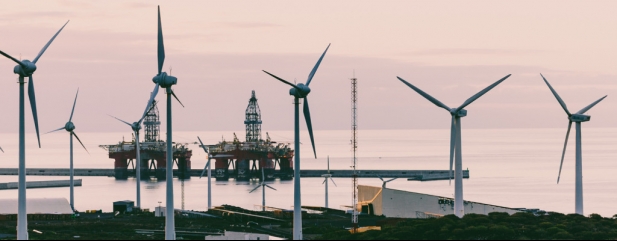Archived article
Please note that tax, investment, pension and ISA rules can change and the information and any views contained in this article may now be inaccurate.
Can oil and gas ever be ESG friendly?

While the pledge to hit net zero targets by oil and gas majors BP (BP.) and Royal Dutch Shell (RDSB) may have captured the headlines over the past 18 months or so, the push for more ESG-focused strategies is permeating further down the industry food chain.
In most of this author’s recent discussions with companies in the sector, the ESG (environmental, social and governance) angle has been brought up unsolicited by the management teams involved.
However, can buying oil and gas shares ever truly be compliant with an ESG investment approach or are these companies just paying lip service to the latest hot trend in the markets?
An example of a small cap company positioning itself to be at the forefront of energy transition is Kistos (KIST:AIM). It is run by Andrew Austin, who may be familiar to some investors from his previous ventures Rockrose Energy (taken over in July 2020 in a £243 million deal) and IGas Energy (IGAS:AIM).
Austin explained to Shares that the acquisition of Tulip Oil Netherlands, on which the company recently completed, was a step on the road to Kistos being one of the lowest emitting operators in Europe.
The Q10-A field picked up as part of the deal uses solar and wind power, and carbon emissions were less than 10 grammes per barrel of oil equivalent in 2020 compared with an average level of 21 kilogrammes for the North Sea as a whole. The plan is to further develop these assets using solar and wind power.
Kistos is a bit of an outlier in that its strategy is explicitly built around reducing emissions. However, Orcadian Energy, which plans to list on AIM in late June or early July, is another company which has signalled its commitment to reducing emissions.
Orcadian is raising £5 million to support the development of its Pilot heavy oil field in the North Sea and chief executive Steve Brown told Shares that the company is in talks with wind power firms about the installation of turbines to help supply power to the project which has 77.8 million barrels of proven and probable reserves. This is part of a wider Oil & Gas Authority-led electrification project in the North Sea.
While oil and gas firms can reduce the emissions of their operations, there is no escaping the reality that the hydrocarbons they produce are themselves polluting.
However, before we dismiss these companies’ ESG ambitions entirely, it is worth remembering that demand for oil and gas is not going to disappear overnight.
The International Energy Agency recently put out a forecast suggesting oil demand would surpass pre-pandemic levels in 2022.
Even if the priority of these businesses is inevitably to profit from sales of oil and gas, by seeking to be good stewards of these assets, which would likely be developed anyway, they are at least limiting the harm done to the environment.
Whether or not that makes them suitable for those investing with an ethical bent is open to question.
Important information:
These articles are provided by Shares magazine which is published by AJ Bell Media, a part of AJ Bell. Shares is not written by AJ Bell.
Shares is provided for your general information and use and is not a personal recommendation to invest. It is not intended to be relied upon by you in making or not making any investment decisions. The investments referred to in these articles will not be suitable for all investors. If in doubt please seek appropriate independent financial advice.
Investors acting on the information in these articles do so at their own risk and AJ Bell Media and its staff do not accept liability for losses suffered by investors as a result of their investment decisions.

 magazine
magazine








